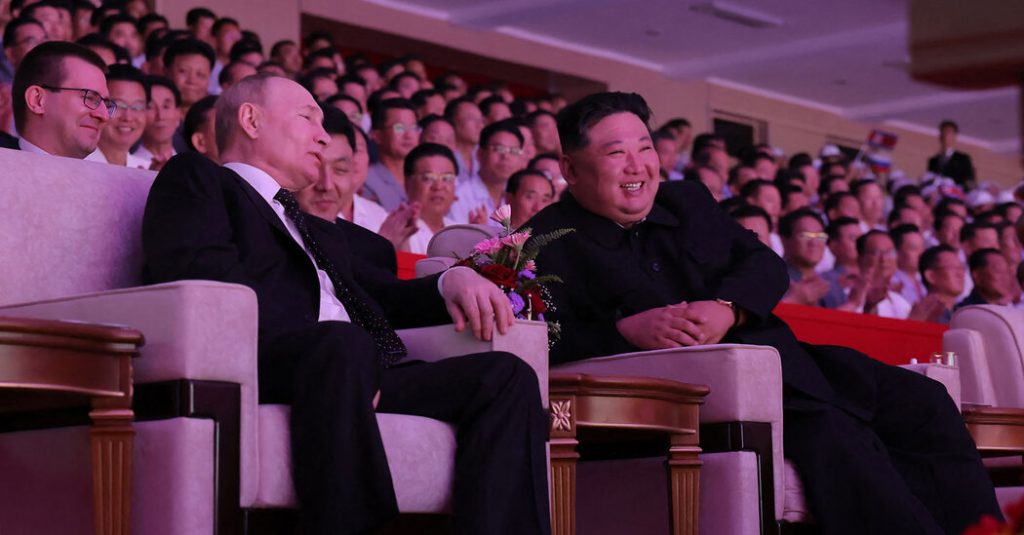The content highlights the significance of the Cold War-era mutual defense agreement that was recently revived between North Korea and Russia during a visit by President Vladimir V. Putin to Pyongyang. The agreement indicates that in the event of one country being in a state of war, the other would provide military and other assistance promptly, intensifying the concerns of neighboring countries like Japan and South Korea. The text of the agreement also suggested that Russia could support North Korea in enhancing its nuclear capabilities, leading to further alarm among officials in Tokyo and Seoul.
The alliance between North Korea’s leader, Kim Jong-un, and Mr. Putin is viewed as a move that will escalate tensions in northeast Asia by exacerbating the existing divide between the democratic partnership of the United States, South Korea, and Japan and the autocratic camp of Russia, North Korea, and China. The potential collaboration between Russia and North Korea in developing weapons poses a threat to international efforts to prevent North Korea from advancing its nuclear and missile technologies, according to analysts. The situation has raised concerns about the implications of Mr. Putin’s involvement in the region, especially in light of his actions in Ukraine.
South Korea strongly criticized the defense agreement between North Korea and Russia, labeling it as sophistic and absurd. The South Korean government emphasized that any cooperation aiding North Korea in strengthening its military power would violate U.N. Security Council resolutions, calling for international monitoring and sanctions. South Korea also expressed its commitment to bolster defense cooperation with the United States and Japan to counter the nuclear and missile threat posed by North Korea. Additionally, South Korea planned to review its policy of not providing lethal weapons to Ukraine in light of the developments.
The meeting between the authoritarian leaders of Russia and North Korea highlighted the challenges facing the United States and its Asian allies in addressing security concerns emanating from North Korea and China. The resurgence of a Cold War-era mutual defense pledge between North Korea and Russia has sparked anxiety among other countries in the region. The growing bond between Russia and North Korea has significant implications, potentially impacting relations among major powers in the region such as the United States, Japan, South Korea, China, and Russia. The developments have prompted calls for a fundamental review of current security policies and strategies to address regional threats.
The content also discusses the potential implications of the Russia-North Korea alliance on regional security dynamics and geopolitical relations in East Asia. It raises questions about the need for close cooperation among the United States, Japan, and South Korea in light of broader regional developments involving North Korea, Russia, and China. The analysis also underscores the importance of maintaining trilateral cooperation among Japan, South Korea, and the United States, especially in the face of changing administrations and regional security challenges. The content emphasizes the need for a nuanced approach to diplomacy that considers the diverse interests and influences in the Korean Peninsula’s political landscape.
Overall, the content underscores the significant impact of the Russia-North Korea alliance on regional security and international relations in East Asia. It highlights the complex dynamics at play, including the evolving security challenges posed by North Korea’s nuclear ambitions and ballistic missile tests. The content emphasizes the need for strategic responses and coordinated efforts among key stakeholders to address the growing threats posed by North Korea and its allies, while also considering the broader geopolitical implications on regional stability and security.


